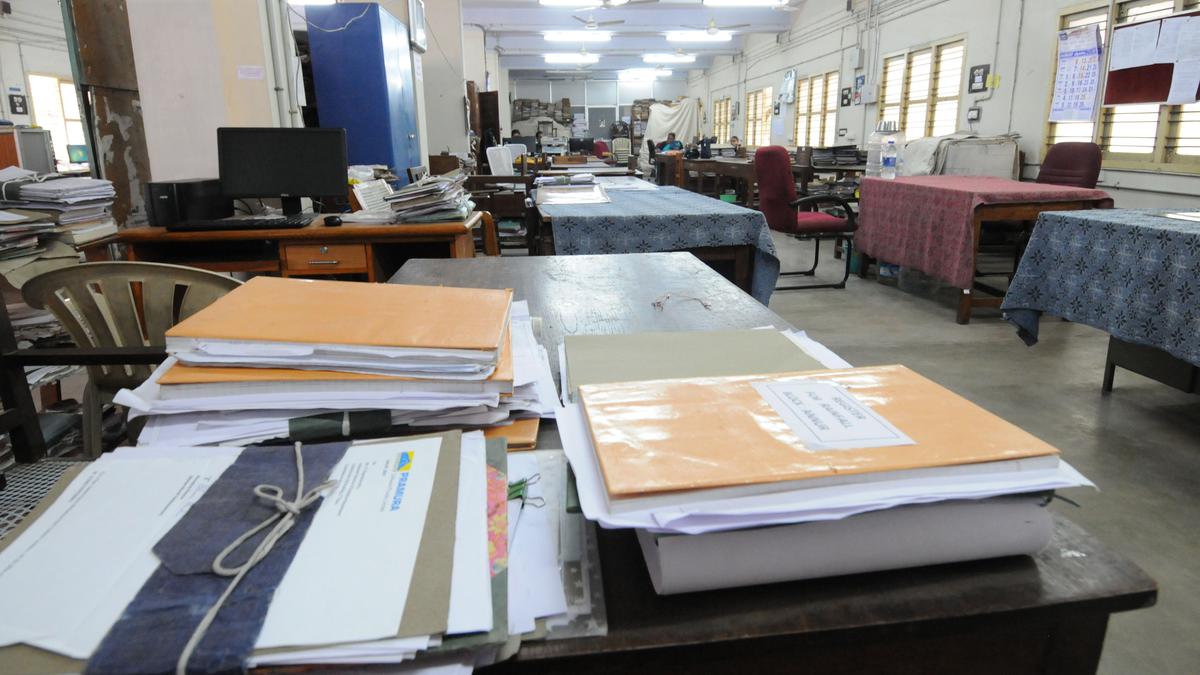
A job and career right the disabled cannot be denied Premium
The Hindu
The denial of reservation in promotion denies the disabled the right to progress to a higher level in their organisation and is a hindrance in the goal of inclusion
‘Justice delayed is justice denied’ is a statement often used in the context of judicial cases that have been or are pending for long in courts of law. There could be several factors responsible for such a situation to arise. These include the complex nature of cases; a lack of judicial attention as far as the aggrieved party is concerned, and even a lack of resources/power/other kinds of support available to the aggrieved side. One such issue that has become a victim of such a state of affairs is reservation in the promotion of persons with disabilities.
The Persons With Disabilities (Equal Opportunities Protection of Rights and Full Participation) Act, 1995, or the PwD Act, first recognised the right of the disabled person to be employed and promoted in government jobs on equal basis with others. In order to ensure this, it introduced 3% reservation for the disabled in employment. The reservation of seats for the disabled existed in Groups C and D prior to the introduction of the PwD Act. Now, the Act extended reservation for the disabled in Groups A and B — a progressive step towards ensuring the dignity of and equality for the disabled at all levels including career advancement in government jobs. In addition to this, it also fixed the percentage of reservation of seats at 3%, which opened the gates of recruitment to disabled people in different sectors of the government.
Reservation for the disabled in promotion in all groups was first interpreted as an integral part of reservation by the Department of Personnel and Training, order no. 3603517195-Estt./SCT, which was passed in 1998. This Government Order was issued by the department in 1998 after the passage of the PwD Act, 1995. It happened after Parliament enacted the provision of reservation of promotion for Scheduled Castes (SC) and Scheduled Tribes (ST), reversing the Supreme Court of India verdict in Indra Sawhney Etc. vs Union Of India And Others, Etc., where reservation in promotion for SCs and STs was withdrawn. The Department of Personnel and Training interpreted the Parliament enactment to be applicable to persons with disabilities also as they are from the marginalised sections of society as well, and hence enjoy similar protection from the state of law.
Unfortunately, another Department of Personnel and Training order, i.e., no. 36035/3/2004-Estt/Res, in 2005 withdrew the reservation of the disabled in promotion in Groups A and B. The department’s reversal of its own order was not only shocking but also clearly reflected the apathetic and hostile attitudes of the administration and government towards the needs and aspirations of the disabled. The department’s order of 1998 opened the doors of opportunity to the disabled to progress in their organisations in keeping with the spirit of the PwD Act. But the department’s order of 2005 may be understood by the ruling dispensation as an expression of denial of equal space and place to the disabled at the higher level in organisations.
As a result, a case, no. 36035/3/2004-Estt(Res) was filed in the Supreme Court in 2008, by Rajeev Gupta against the Union of India. After deliberations and hearings for around eight years, it was adjudicated to grant reservation in promotion for the disabled in Groups A and B, which, regrettably, had been taken back by the Department of Personnel and Training order of 2005. The final judgment was made in 2016, granting reservation in promotion in Groups A and B. But the Government of India did not make any effort or give any direction to implement the judgment.
Mr. Gupta then filed a case of contempt in the Supreme Court in 2017; the hearing still continues. The government counsel filed an affidavit arguing for the stopping of the proceedings in the contempt petition by Mr. Gupta citing the presence of another case, i.e., Siddaraju vs State of Karnataka & Ors. in the Supreme Court, in 2017. This affidavit by the Government of India is an attempt to cause hindrance to the result of the contempt petition. As a result, the contempt petition is still in the process of hearing.
The Civil Appeal no. 1567 of 2017 in Siddaraju vs State of Karnataka & Ors., in its several hearings, also upheld the reservation in promotion for the disabled and made null and void the Department of Personnel and Training order of 2005.





















 Run 3 Space | Play Space Running Game
Run 3 Space | Play Space Running Game Traffic Jam 3D | Online Racing Game
Traffic Jam 3D | Online Racing Game Duck Hunt | Play Old Classic Game
Duck Hunt | Play Old Classic Game











